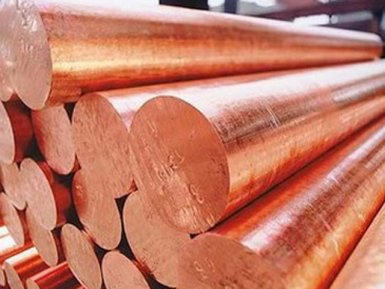Non-ferrous metals

Are you interested in a certificate of non-ferrous metals from the supplier company AvecGlob? Here you will find the necessary information on this topic.
Non-ferrous metals include all metals and alloys in which steel or iron make up less than half of its weight / chemical composition.
Importance of non-ferrous metals in the economy
Non-ferrous metals, such as aluminum, copper or zinc, are important for manufacturing, sustainability and economic growth. They are indispensable for many products in the automotive, aerospace, engineering and construction industries. Their unique thermal, electrical, and insulating characteristics combined with infinite recirculation and low weight make them indispensable for achieving the world’s energy and resource use goals.
Basic properties of non-ferrous metals
Colored materials are used because of their low mass (aluminum), high conductivity (copper), resistance to corrosion processes or due to non-magnetic properties (zinc). The latter two properties distinguish them from steels or alloys based on iron.
Non-ferrous metals are necessary for machine building, transport, aerospace, construction, packaging, electricity and energy, electronics and medical devices.
Supplier — AvekGlob Company — offers various types of non-ferrous metals and alloys that meet the requirements of standards. The whole range of non-ferrous metals is offered at affordable prices from the manufacturer. The supplier guarantees the timely delivery of products to any address specified by the consumer.
Consumption volumes
In the EU economy, the non-ferrous metals sector is 1.25% (19.91 billion euros) of production. In 2010, the annual consumption of the sector exceeded 116 billion euros (1.8%).
In the production of non-ferrous metals, aluminum accounts for the largest share. The aluminum industry of the European Union employs more than 300,000 people. Most of these jobs are accounted for by processing industries.
The problems faced by the non-ferrous metals sector
Important issues affecting the competitiveness of the EU non-ferrous metals sectors are climate change, environmental protection, energy costs, access to raw materials, research, innovation and trade. The production of non-ferrous metals is very energy intensive, and high energy prices prevent investments in primary production. The lack of production is partly due to increased use of recycled materials and increased imports.
The main factors of investment decisions made by non-ferrous metals producers are access to raw materials and energy at competitive prices, as well as proximity to end users.
The future of the non-ferrous metals sector depends on innovation, improving product quality, finding markets and new products to meet market needs, such as the use of antiseptic qualities of copper or new advanced conductor alloys.
The cyclical nature of commodity prices, determined by world demand and supply, also affects the volume of use of non-ferrous metals.
Supplier — AvekGlob Company — offers to purchase non-ferrous metals in a wide range of profiles, brands and technological applications. Products can be bought at a price formed on the basis of European and world standards. Implementation is possible in bulk and retail, for regular customers, a flexible system of discounts operates.


